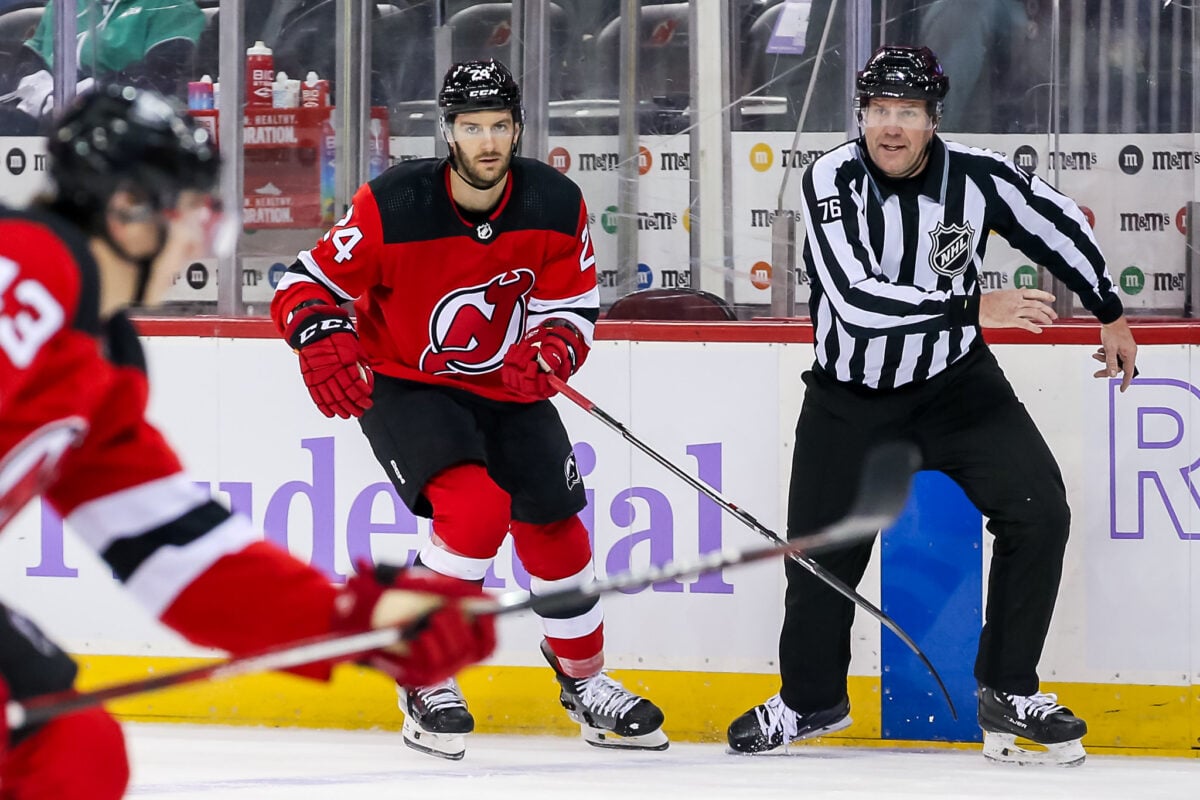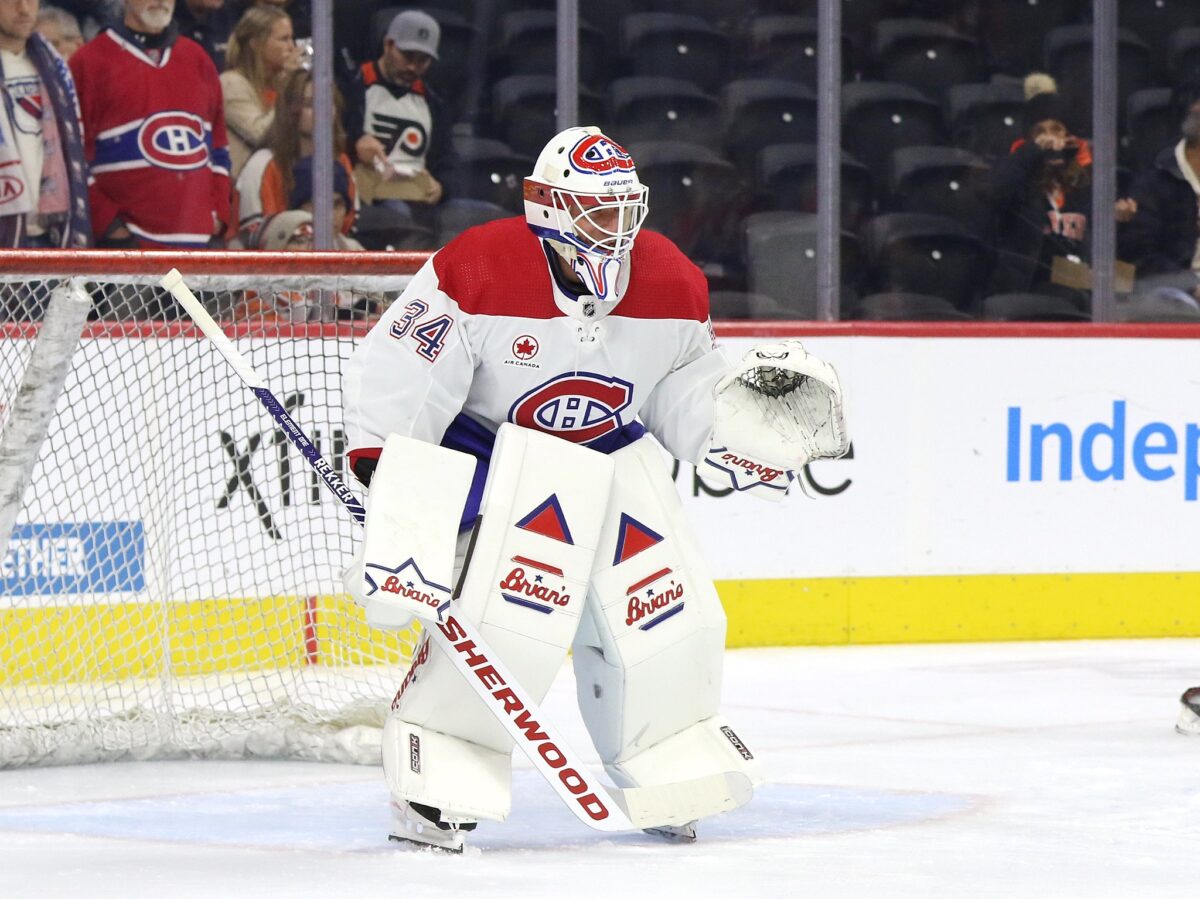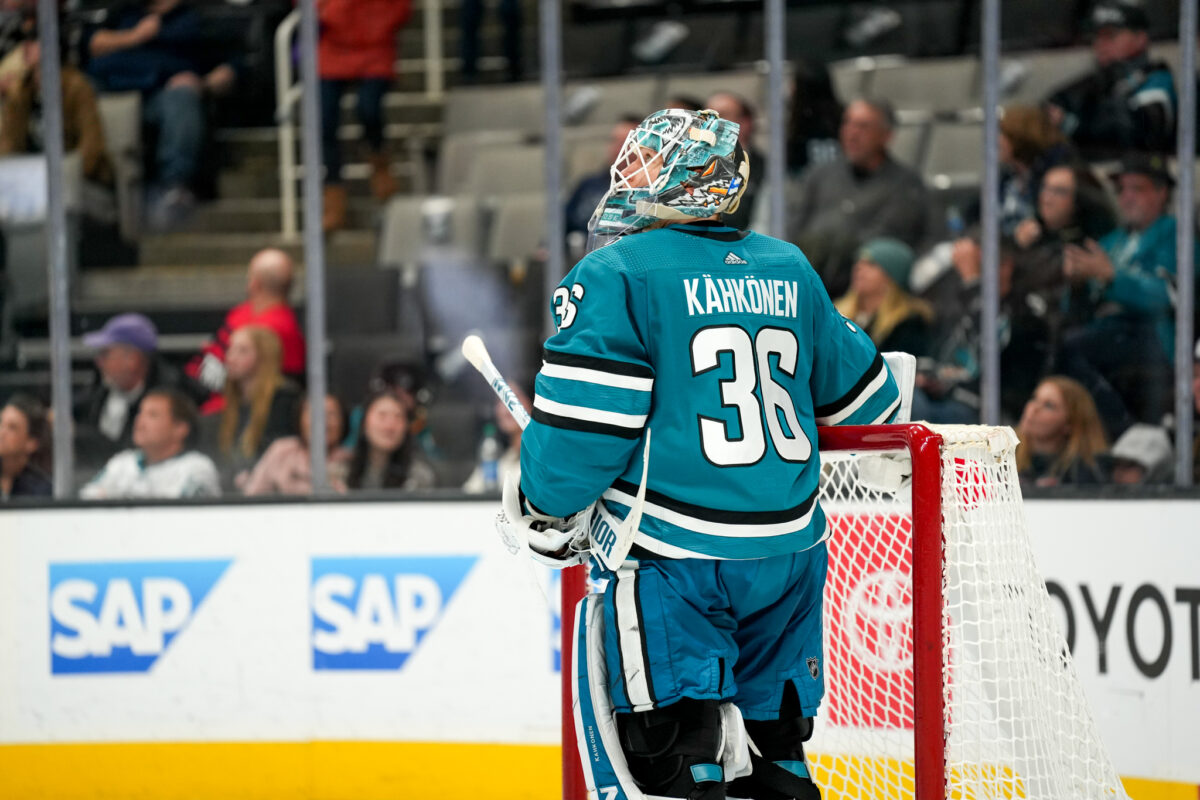Heading into the 2024 NHL trade deadline, the New Jersey Devils found themselves in a bit of an awkward spot — they were neither in a playoff spot nor low enough in the standings to consider a full sell-off and re-tool. Naturally, general manager Tom Fitzgerald decided it would be beneficial to the team if he applied both schools of thought: trade away expiring unrestricted free agents (UFA) who garner interest while conservatively buying a complete revamp in net, which has been their biggest issue this season.
By 3:00 PM Friday, the Devils had made a total of four trades. Fitzgerald shipped off two expiring UFAs — the only two who likely got any interest at all — and acquired two new goaltenders for the rest of the season, one of whom is also signed for next year.
Tyler Toffoli Traded to the Winnipeg Jets
The first order of business on Friday was shipping stud goal scorer Tyler Toffoli to the Winnipeg Jets in exchange for a second-round pick in 2025 and a third-rounder for 2024. The Devils retained 50% of his $4.25 million cap hit.

Toffoli, who was a healthy scratch in the Devils’ 4-1 win over the St. Louis Blues last week, was the Devils’ leading goal scorer with 26 on the season and held a point total of 44 points. His underlying statistics have also been superb this season and have remained pretty consistent throughout his career. He had an expected goal share (xGF%) of 51.88% at 5v5, good for seventh among forwards on the Devils while placing sixth in individual expected goals (ixG) with 12.09.
Related: Devils’ Timo Meier Has Awoken
It was a bit of an underwhelming start to the Devils’ trade deadline day, in all honesty — most expected a bigger return for a player that leads the team in goals. I expected either a first-round pick, the Montreal Canadiens’ second-round pick in 2024, or one of the Jets’ better prospects, like Chaz Lucius or Colby Barlow, to be a part of the trade. With a relatively mediocre return and the Devils still somewhat in contention for a playoff spot, I would have preferred they kept Toffoli for this season.
Colin Miller Traded to the Winnipeg Jets
The Jets struck again a couple of hours later, taking defenseman Colin Miller from the Devils in exchange for a fourth-round pick in 2026. The Devils did not retain any of his $1.85 million salary.
New Jersey acquired Miller during the off-season from the Dallas Stars – who were given a fifth-round pick in exchange for his services. He played well in his limited time in New Jersey, though coaches sometimes made some questionable-at-best decisions on his deployment and time as a healthy scratch. In 41 games this season, Miller scored four goals and eight points while playing primarily alongside up-and-coming star Luke Hughes.

His underlying statistics, like Toffoli’s, were also strong this season and have been throughout his career. Among Devils’ defensemen with at least 40 games played, Miller was second in xGF% — trailing only rookie Simon Nemec — with 53.75%. His three years on an extremely weak Buffalo Sabres team from 2019-2022 were the only three seasons in his career when he had a sub-52.5% xGF%. He had the second-highest expected goals above replacement per 60 minutes (xGAR/60) on the Devils’ blue line, only behind Santeri Hatakka, who only played seven games this season.
I don’t have a strong opinion on this trade. I liked Miller, but it was clear that he was not a part of the picture moving forward, even if I would have kept him around. His shot from the point was a great asset for the Devils, who are without a real shooting threat from the blue line with Dougie Hamilton injured. I don’t mind the return, though, considering he was acquired in the offseason for a fifth-round pick.
Acquiring Jake Allen From the Canadiens
Shortly after the Miller trade, the Devils acquired goaltender Jake Allen from the Montreal Canadiens in exchange for a conditional third-round pick in 2025. Allen comes with 50% retention on his $3.85 million average annual value, and the third-round selection turns into a second if he plays 40 or more games in the 2024-25 season.
It had long been rumored that the Devils were going after a goaltender in the leadup to the trade deadline but fell short of acquiring a star netminder like Jacob Markstrom or Linus Ullmark. The next best thing was a goaltender like Allen: a reliable presence in net who has been relatively average throughout his career. It’s been painfully obvious that all the Devils needed this season was average goaltending, and Allen is just that.

Allen has a goals saved above expected (GSAx) of -2.8 this season, which isn’t great but is better than what any of the Devils’ three goaltenders had posted in 2023-24. His per-60 rate of -0.138 is also better than what New Jersey’s goalies have done, immediately putting him in a position to take over the starter role, especially considering that he’s earned the bulk of a team’s starts in prior seasons.
At 50% retention and signed through next season, Allen could find himself playing most of the Devils’ games in 2024-25. In fact, the stipulation on the draft pick being sent to the Canadiens is that it turns into a second-rounder if he starts 40 or more games. I don’t think he’ll get there — either Fitzgerald goes after a big-named goaltender like he said he wanted to (from ‘With Devils’ deadline moves, Tom Fitzgerald looks to summer of ‘big-game hunting’ ahead,’ The Athletic, March 8, 2024), or he’ll be in a rotation with one (or both) of Nico Daws and Akira Schmid — which makes the trade even better for the Devils.
Swapping Goalies With the Sharks
Right as the trade deadline came to its 3:00 PM end, news broke that the Devils had traded goaltender Vitek Vanecek and a seventh-round selection in 2024 to the San Jose Sharks in exchange for fellow netminder Kaapo Kahkonen.
It’s no secret that this season has been, well, horrible for Vanecek, who ranks third-worst in the league in GSAx, only above Joonas Korpisalo of the Ottawa Senators and Arvid Soderblom of the Chicago Blackhawks. After last season’s average-at-worst performance from start to finish, it was incredibly disappointing to see him flounder in the crease, constantly being out of position or outright missing a seemingly easy save.

Kahkonen’s box score statistics might seem a bit questionable — he has a save percentage (SV%) of .895 and goals-against average (GAA) of 3.81 this season — but he’s been almost exactly average this year in terms of GSAx, showing me that his SV% and GAA are a product of a Swiss-cheese-esque Sharks defense. As a matter of fact, his GSAx and GSAx/60 are both better than Allen’s, sitting at -1.8 and -0.065, respectively. Kahkonen’s 5v5 high-danger save percentage (HDSV%) of .838 is ranked 15th among goaltenders who have played at least 900 minutes (about 20 games), an area where Vanecek in particular struggled, placing last of that bunch with a HDSV% of .738. If I were the Devils’ coach, I’d be starting Kahkonen more than anyone else.
Fitzgerald’s last move of the trade deadline was a slam dunk. He unloaded a bad contract for a poor goaltender, who has more than one year left on his deal, all the while upgrading the Devils’ situation in goal for the mere cost of a seventh-round pick. Even if it was just a cap dump, getting Vanecek’s contract off the books is a win for a seventh-round pick. Acquiring a start-able goaltender as well is a massive cherry on top. This move gets an A+ from me — no doubt about it.
Fitzgerald Looking to Off-Season Already
In a press conference post-trade deadline, Fitzgerald was very candid about his intentions toward the trade market after the season ends. He admitted that his moves to address the netminding on Friday were just moves for this season — he fully intends to pursue the big fish in goal who might be available come the summer. I anticipate that he’s holding a similar outlook with Toffoli and Miller in that he believes that the Devils will be Cup contenders for years to come and will look to fill the roles they left behind in free agency before the 2024-25 season begins.
